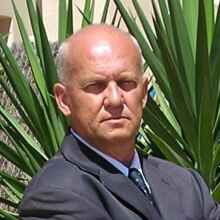The Expat Identity

“Stop pretending, you are Polish anyway” – I was told during my conversation with an old high school friend at a reunion meeting in Poland. We were talking, and the first thought which came to my mind was in English. In such situations a Polish equivalent of the same thought comes in a flash, but not always – sometimes it is delayed, and that makes you hesitate or look for words, mumbling incoherently in your first tongue.
In the country producing large-scale emigration for hundreds of years, such hesitation is quite often considered as a sign of betrayal. Despite all the knowledge gathered by crossing cultures researchers and explorers, the Polish are still being taught in school that once you are born in their land, carrying your Polish culture within yourself through the rest of your life is a holy and irrevocable duty. But at the same time there has always been a number of people holding a much broader point of view in this country, who have developed their own ways of independent thinking and can listen. My problem is that I am still learning how to recognize them, as they are a minority.
Roots
When I set foot back on Polish land after a number of years spent in the United States I knew that something was different, but I expected to overcome that shortly. I was wrong. I was “soaked” as my psychologist friend said, in a different culture. So I could easily understand Polish words spoken around me, but my mind kept bringing up non-Polish images and ideas. That in turn made me have different reactions and a different body language. That was enough to be perceived as different.
Thus I was a stranger, living in a foreign culture, communicating in its language in a somewhat different manner. Yes, there was the language, but the melody was different: the sound of it differed from the original. After all, American English is mostly produced down in the throat, while Polish sounds are made at the teeth. For the same reason it always takes time for both nations to learn to pronounce the other language properly. Their listening and speaking systems work on different frequencies.
My first experience with Polish language schools was not as welcoming or friendly as you might expect regarding my background in a country which has made huge steps in adopting the Western economic system, but taken from a social and cultural point of view is still in a stage of transition. Young Poles dominating all business areas are under constant specific pressure: on the one hand they feel the opportunity given them by their age, as middle aged workers are simply discriminated against on a massive scale (Poland ranks in the highest unemployment numbers of people over 50 years old in Europe), but for the same reason they feel unsecure as their interior clock is ticking fast and the future may look unclear. Most of them feel that either they make it fast or never.
For the same reason some of my first contacts with English school owners in Poland were unprofessional and unpleasant, as many of them had not enough skills to verify my English, so they would switch quickly into Polish, prioritizing their own self confidence over the results of the verification process. But after some time I found a well- managed, certified school with a high level of professionalism and I have been working with them since then.
A Cultural Melody
Has it ever happened to you that you heard someone talking in the distance and you thought they were talking in your language, even though it was too far away to understand any words? It is normal. Each language and dialect has a certain set of commonly used sounds. We are born with them and grow up with them. Around the age of 9 this process is mostly completed which is why most people switching into a different culture after that age may always carry a more or less different accent. It is proven though that some of them may adapt almost perfectly to the sound of the new language at a much later age, and it is no coincidence that many of those who can are former or active musicians. That is why I call it ‘melody’, as this is mostly related to hearing.
One of the major problems learning language in the EFL system (learning a foreign language but living in a country where the taught language is not spoken) is that you are not exposed to the variety of sounds and dialects. In your original language you receive a whole bunch of additional information besides the content of spoken words, i.e. some idea about the origin of the speaker, their position in society, education, background and many other features involved in communication. You may learn some of it abroad but the whole process is so incredibly slow that your lifetime may not be sufficient to make significant progress.
Recognizing dialects in your second language is, in my opinion, a crossing point of assimilating a second culture. Your own spoken sound system needs to adapt to a new melody and create new connections in your brain, responsible for more detailed hearing of the second language frequency. As this process is again related to hearing, musicians and people with better than average hearing skills may succeed in this area much faster than others. But for some people, even those living abroad but having regular daily contact with their native tongue the whole process may be lengthy or never completed. Another factor here is age, as our adapting abilities reduce with aging.
This well-known process is not necessarily recognized officially. In Poland many public announcements in English are not recorded or verified by native speakers, which often results in pronunciation, colloquial and spelling errors. As language education depends heavily on repetition, such communications disturb the overall educational process, e.g. on the Warsaw subway, where daily commuters listen to incorrectly pronounced English messages many times a day.
Cultural melody can be lost. Regardless of my efforts to keep my native tongue active, living and working in a fully English-dominated environment for a long time took many elements out of my Polish. For the first few years in Poland I was recognized by many as a foreigner, despite my efforts to keep my communication at the best level. Something was different: I used correct but not the most popular expressions, my body language was different. Although my fluency is unquestionable, the sharpness of my Polish has gone down. When I speak and write in Polish I often need to use descriptive narration, while my Polish friends, especially journalists, may “hit the nail on the head” with just a couple words.











